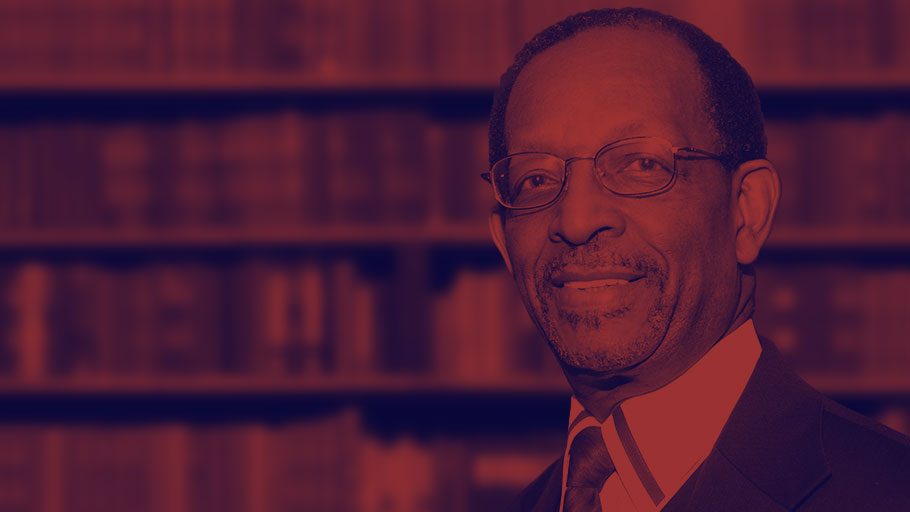The June 17th Day of Direct Action (DODA) spearheaded by the Institute of the Black World 21st Century (IBW) is history. “Drum Majors for Justice,” primarily from the Northeast where IBW has worked to form drug and criminal justice policy reform collaboratives, marched to the gates of the White House to demand that President Obama end the racially-biased and destructive “War on Drugs” that has so severely damaged Black families and communities and led to mass incarceration of Black people. Equally important, protesters demanded that the damage be repaired through the development of a massive jobs and economic development program with a priority on formerly incarcerated persons. It was heartwarming and encouraging to see so many unemployed youth, formerly incarcerated persons, victims of violence and fratricide, rap activists and young organizers/leaders engaged in “speaking truth to power.”
DODA was also significant because it was the first time that large numbers of Black advocates/organizers/leaders marched on the White House to demand that President Obama directly respond to the myriad crises in distressed inner-city, predominantly Black neighborhoods – America’s “dark ghettos.” Apparently some major civil rights leaders were concerned that the March/Rally would reflect negatively on President Obama. DODA was never intended as an anti-Obama exercise. However, it should signal that Blacks, who marched on ballot boxes in record numbers in 2008 and 2012 to provide the margin of victory for President Obama in several key states, do expect him to directly and visibly respond to the “State of Emergency” in America’s dark ghettos . At a minimum he should declare the crises afflicting distressed Black neighborhoods a moral and political crisis and call upon the Congress and the nation to act!
DODA was not anti-Obama but nor was it about protecting his image as America’s first Black President. Therefore, DODA must not simply be a one day event. As Rev. Jesse L. Jackson remarked at the Pre-Rally at the historic Metropolitan AME Church, we must decide whether we will submit to the intolerable conditions created by the War on Drugs, mass incarceration and blatant neglect by government or we can make up our minds to resist! In that vein, as the nation, including the masses of Africans in America prepares to “celebrate” July 4th, arguably the most patriotic holiday of the year, I believe the words of Frederick Douglass’ July 4, 1852 speech in Rochester, NY should reverberate throughout Black America: “What to the American slave is your Fourth of July? I answer: A day that reveals to him more than all other days in the year, the gross injustice and cruelty to which he is constant victim.” Africans in America have certainly made progress since Douglass delivered these words, but we are still a distance from the “promised land.”
While it is understandable and acceptable that Black people view U.S. holidays as family days and occasions to gain respite from life in a tension-filled society, it is imperative that we also use these occasions to reflect on the specific nature of our historical struggle and the challenges/barriers we must still overcome. For example, under the leadership of Rev. Dennis Dillon, Editor/Publisher, the New York Christian Times and Rev. Dr. Johnny Ray Youngblood, Pastor, Mt. Pisgah Baptist Church and creator of the world renowned Maafa Commemoration, scores of New York area faith leaders have seized on the occasion of the commemoration of the 150th Anniversary of the Emancipation Proclamation to launch a major “economic emancipation campaign.” On June 19th, Juneteenth, thousands of Black people gathered at the Riverside Church to hear calls to use the 1.2 trillion dollars in Black buying/consumer power to build a stronger Black economy. They also urged Black people to use Black dollars as a weapon to reward those banks and businesses that invest in Black communities and punish those who do not with boycotts/economic sanctions.
Similarly, in this year of commemorations, the 50th Anniversary of the March on Washington should be a major occasion to galvanize Africans in America and our allies to demand that the State of Emergency in America’s dark ghettos be addressed with a massive “Marshall Plan” type program to rescue and revitalize distressed Black communities. Black leaders should remind America of Dr. King’s assertion that the “Promissory Note,” the check that was to guarantee full freedom in terms of basic rights to jobs, housing, health and education under the Declaration of Independence and Constitution, kept coming back “marked insufficient funds.” As Dr. Mtangulizi Sanyika, Founder of the African American Leadership Project, recently put it — after the March on Washington “a deposit was made, but the check still bounced.” Hopefully, the 50th Anniversary of the March on Washington will be filled with the kind of resistance Frederick Douglass passionately called for in his July 4th oration. Frankly, given the dire condition of millions of Black people who suffer from the effects of the “bounced check,” there is no time for idle, ritualistic, meaningless commemorations or exercises in “leadership profiling and enhancement.”
What to your casualties of the War on Drugs, mass incarceration, chronic unemployment and abandoned Black urban inner-city residents is your Fourth of July? “A day that reveals to [them] more than all other days in the year, the gross injustice and cruelty to which [they are] constant victims.” Therefore, in the spirit of Frederick Douglass, let this day, this year mark the beginning of a season of resistance!
Dr. Ron Daniels is President of the Institute of the Black World 21st Century and Distinguished Lecturer at York College City University of New York. His articles and essays also appear on the IBW website www.ibw21.org and www.northstarnews.com . To send a message, arrange media interviews or speaking engagements, Dr. Daniels can be reached via email at info@ibw21.org .
# # #















